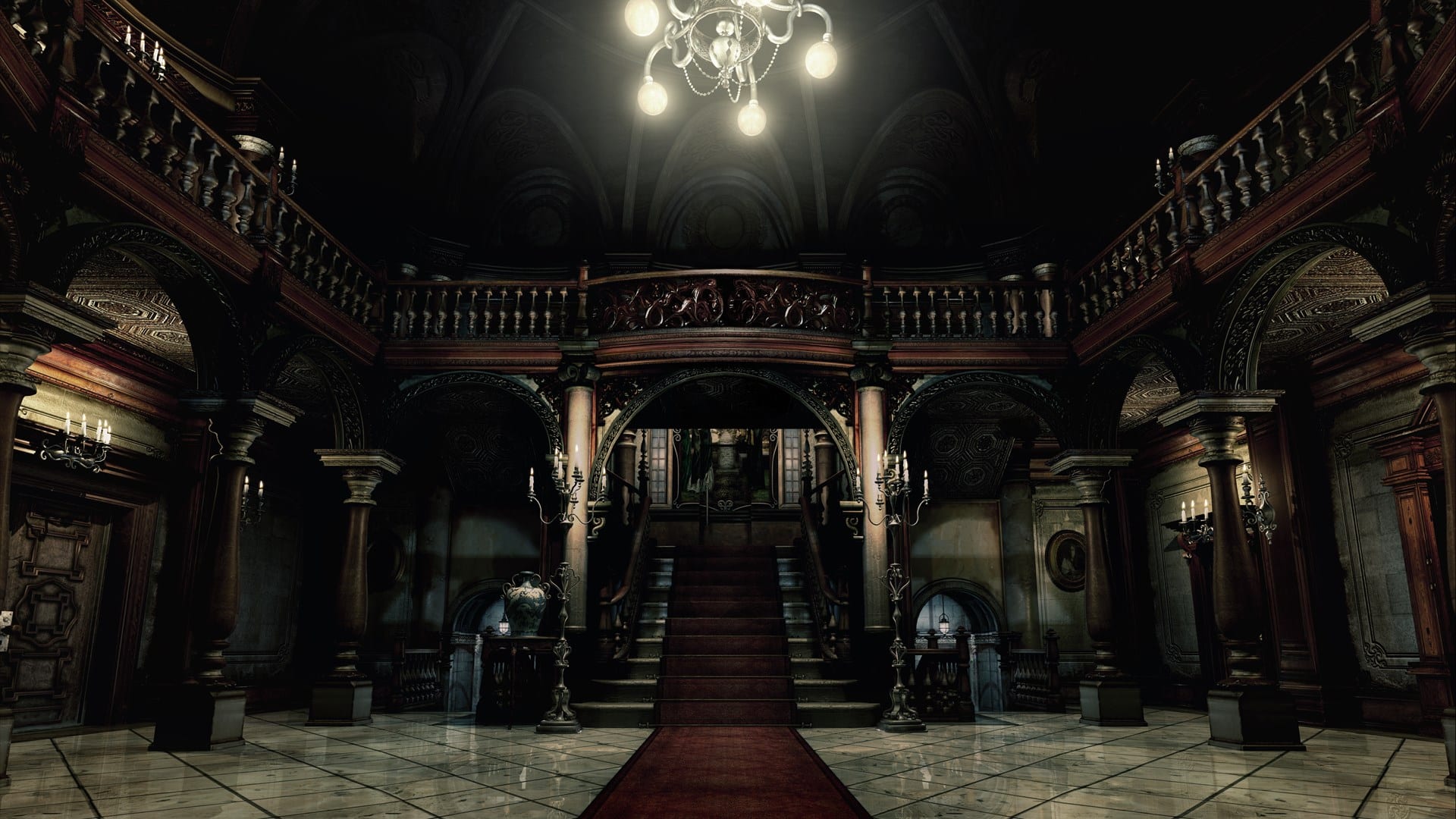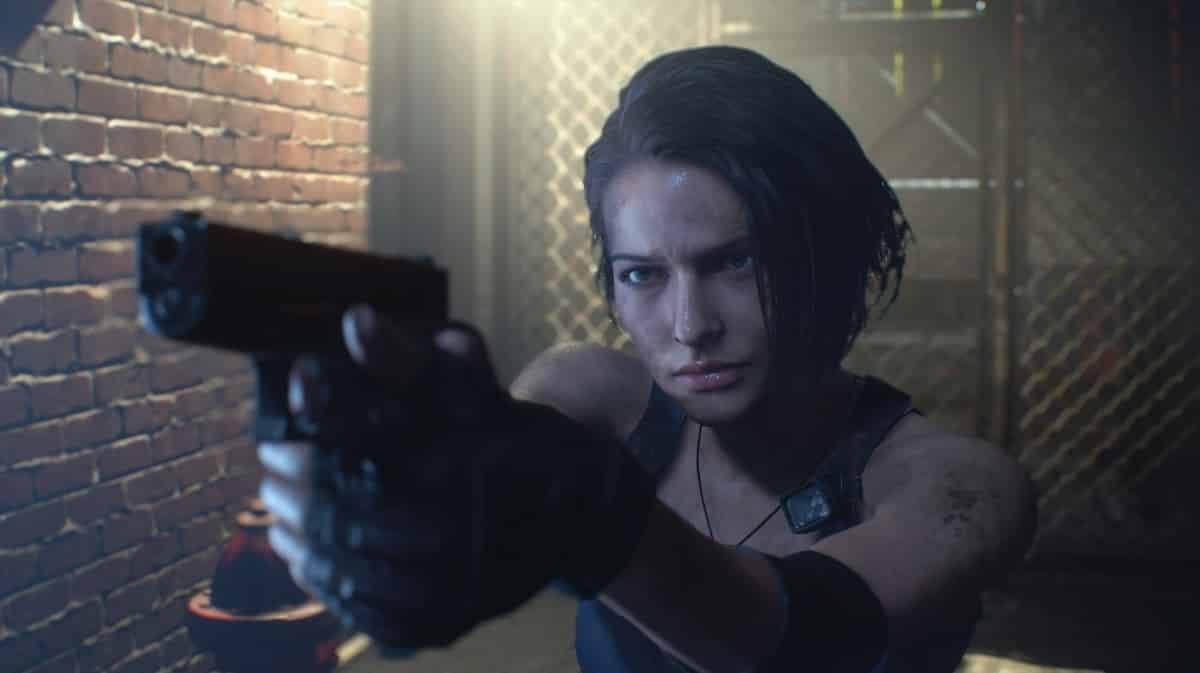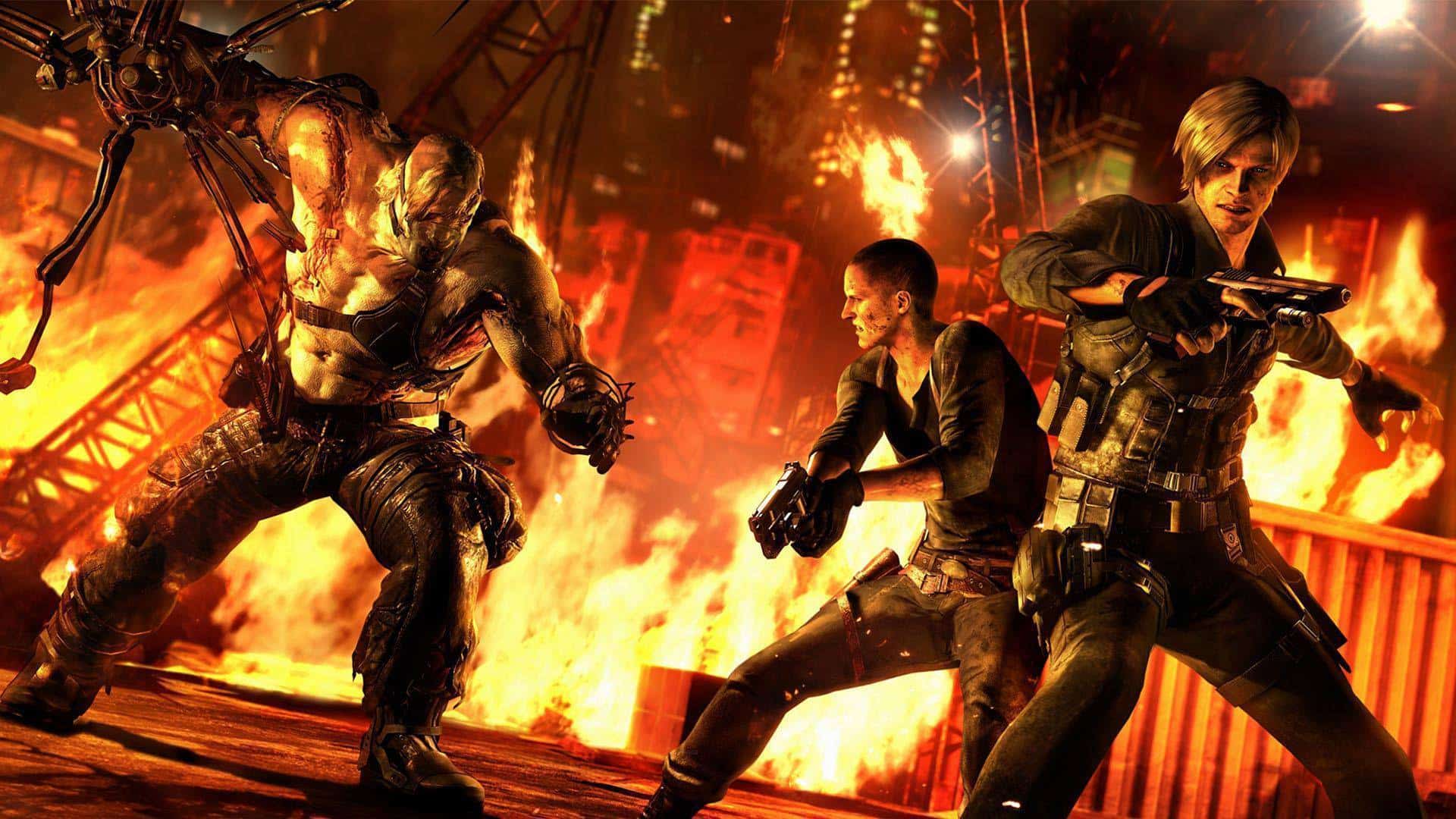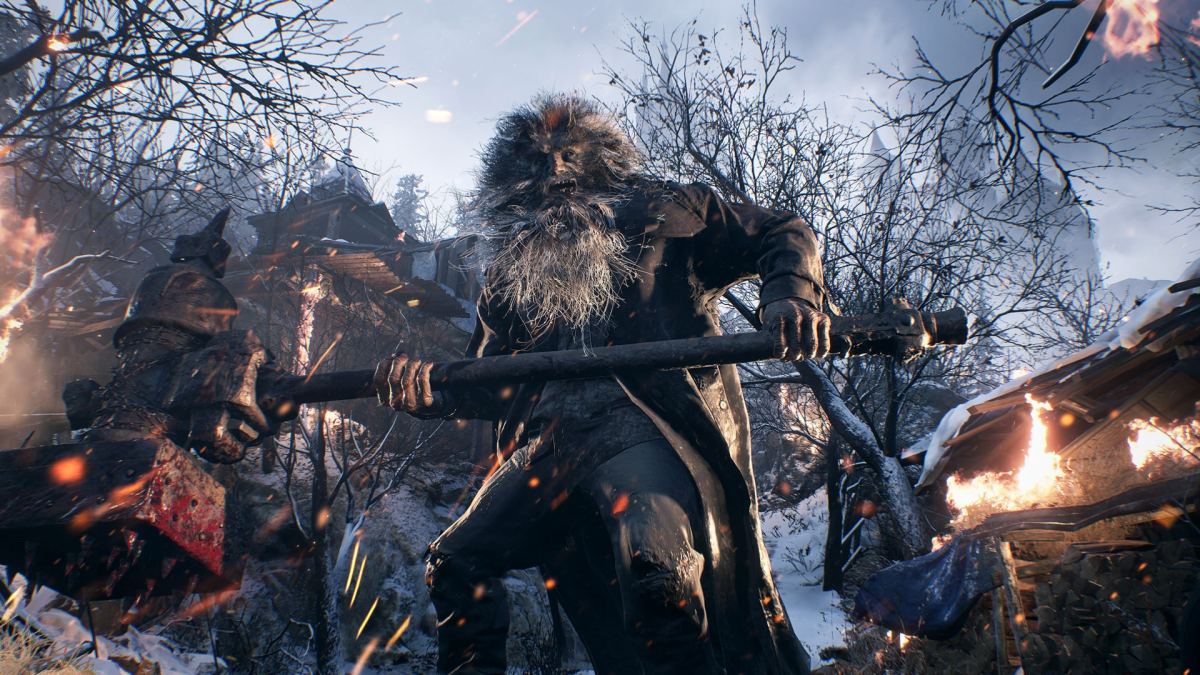Many of our favorite video game franchises are beginning to hit historic anniversaries, and it’s often easy to trace the trajectory of how they’ve grown from the first game to the last. The Legend of Zelda: Breath of the Wild shares much of the exploration and wonder of 1986’s The Legend of Zelda, while pulling in elements of nearly every other adventure along the way. As Halo is set to turn 20 years old, the DNA of Combat Evolved and the much-revered Golden Triangle are still present in this fall’s Halo Infinite. However, Resident Evil is one iconic series that has gone through so many dramatic changes throughout the years that mapping out its progression provides confusion rather than guidance.
Resident Evil recently celebrated its 25th anniversary, and one thing about Capcom’s revered franchise is clear: Like all great horror, Resident Evil refuses to stop changing.
The genre of horror itself has evolved over the past few centuries. The rise of Gothic horror in literature — particularly the works of Mary Shelley, Bram Stoker, and Edgar Allan Poe — helped popularize the genre. Likewise, German Expressionism helped usher in horror to film, while the Universal monster films like Dracula and Frankenstein brought this terror into the mainstream. This pressed on through the decades, with the looming shadow of atomic weaponry post-WWII birthing Godzilla and a slew of giant monster films, while Alfred Hitchcock was busy terrifying audiences with horror that lived right next door. With every new decade, horror morphed into something that reflected the terror of the times.

Though the original Resident Evil hit PlayStation in Japan 25 years ago, the roots of horror at Capcom extend even further back. RE was originally conceived as a remake of the 1989 Famicom game Sweet Home. Itself an adaptation of a film of the same name, Sweet Home had many elements that would go on to become series staples — a spooky mansion filled with puzzles and monsters, limited resources and inventory management, and even a switch to first-person shots when you were going through a doorway. If the original Resident Evil was the video game equivalent of Night of the Living Dead, then Sweet Home was akin to silent classics like Nosferatu or The Cabinet of Dr. Caligari in shaping the horror game genre.
By the time 1996 rolled around, Capcom was ready to give horror another shot, giving the keys to now-legendary designer Shinji Mikami. Though it certainly wasn’t the first 3D survival horror game, being predated by Alone in the Dark, Resident Evil was absolutely the one to do it the best. The fixed camera angles gave the Spencer Mansion a cinematic feel and helped create some amazing bespoke scares, like the iconic dogs crashing through the window. The scarce resources made every encounter a tense series of decisions on whether to stand and fight or run away. And it laid the foundations for a whole mess of backstory and lore that would be explored to various degrees of success over dozens of games.
With rave reviews and strong sales, the series soldiered on with Resident Evil 2 and Nemesis both hitting PlayStation, as well as a Director’s Cut of the original game with rearranged challenges and not-so-uncensored content. This kind of reworking was fitting, considering the long history of alternate cuts of horror films like The Exorcist. This early period also solidified Resident Evil as an agnostic franchise platform-wise, appearing reliably on PlayStation but also making appearances on PC, Sega Saturn, and even Nintendo 64. After the original trilogy, the series began to move in whichever direction the wind blew, even if that wasn’t the best decision in hindsight for various reasons. Code Veronica launched in 2000 during the short-but-sweet life of the Sega Dreamcast. And in the following years, a full remake of Resident Evil and prequel game Resident Evil Zero were GameCube exclusives.

This brief affair with Nintendo culminated in the Capcom Five, which were five games that Capcom planned to launch first on the GameCube. These included the excellent Viewtiful Joe and Killer7, the strange P.N.03, and the ultimately canceled Dead Phoenix. But the undisputed highlight of this pentalogy was 2005’s Resident Evil 4, which changed the trajectory of video games as we know it with its over-the-shoulder third-person action.
If I had to compare the impact that Resident Evil 4 had on games to a single film throughout history, it would be Jaws. Steven Spielberg’s 1975 horror hit changed movies forever, ushering in the age of the summer blockbuster that would be cemented two years later with Star Wars. In a similar way, Resident Evil 4 felt like a line of demarcation for third-person action games. From Gears of War to Dead Space to The Last of Us, the influence RE4 had on countless games and franchises that followed cannot be understated.
Following the monumental success of RE4, Capcom lost its way a bit with Resident Evil 5 and 6, which eschewed the series’s focus on horror and instead went for more globetrotting, bombastic action, chasing the trends established by the likes of Call of Duty. This same kind of thing happens in movies, too. Just look at how the success of the Marvel Cinematic Universe led to a slew of different properties planning to do their own cinematic universes before they’d even released a single film, such as Call of Duty.

Meanwhile, spinoffs like Resident Evil Survivor and Dead Aim relied on cheap and specific gimmicks that felt right at home alongside horror films of the late ‘50s. William Castle’s Macabre promised a $1,000 life insurance policy to all viewers in the event that they died of fright. House on Haunted Hill broke the fourth wall with an actual plastic skeleton that flew around the movie theater. And The Tingler jolted audiences with in-seat devices that caused vibrations coinciding with events in the film.
Horror elements have dripped into other genres with time, as seen in the kid-centric terrors found in E.T. and Gremlins, ultimately establishing new subgenres like horror comedies. Resident Evil has disseminated into new frontiers similarly. Central series figures have appeared as playable fighters in the Marvel vs. Capcom series or cards in Teppen, and a slew of online cooperative and competitive survival games have been released, including last year’s Resistance and the upcoming Re:Verse. Likewise, the Resident Evil franchise is responsible for the birth of several other Capcom series, including Dino Crisis, Devil May Cry, and Onimusha.
Of course, no discussion of Resident Evil and film is complete without mentioning the times the two mediums have collided. The series has had a long and not-so-illustrious history on the big screen, including the six films starring Milla Jovovich, a handful of CG animated movies, and the upcoming Resident Evil: Welcome to Raccoon City, which admittedly is shaping up to be the most faithful adaptation of the games that we’ve seen thus far.

While the franchise may have lost its way for a spell, it came back strong in recent years in two distinct ways. One was with a celebration of its past in the form of remakes of Resident Evil 2 and 3. Horror is constantly reflecting on its own past and remaking its own history. From Suspiria, to Dawn of the Dead, to pretty much every slasher franchise under the sun, if something worked once, chances are someone will try to make it work again. This includes American remakes of modern foreign classics like The Ring and Let the Right One In. Even John Carpenter’s The Thing, one of the all-time great horror films, is itself an adaptation of 1951’s The Thing from Another World. In this regard, the recent RE2 and 3 remakes are carrying the horror torch well.
Apart from the remakes, Resident Evil 7 and the upcoming Village have once again proven horror’s malleability when it comes to the changing times. By shifting to a first-person view, while going back to some of the core tenets of the original PS1 classic, these new games manage to embrace the past while simultaneously readying themselves for the future. Case in point: Resident Evil is far and away Capcom’s bestselling franchise ever with more than 100 million games sold and no signs of slowing down, as recent entries Resident Evil 7 and the Resident Evil 2 remake are both among the 10 bestselling games in Capcom history.
Fear is a primal, fundamental human emotion. The rush of terror we get from a particularly scary film or video game helps remind us that we’re still alive. So long as we keep striving for that rush, horror will continue to evolve to deliver it. And given how synonymous Resident Evil has become with interactive horror, there’s no reason to believe that it won’t continue to evolve for another 25 years.






Published: Apr 3, 2021 03:00 pm